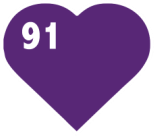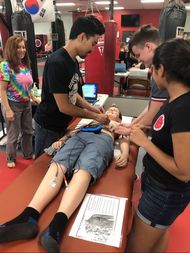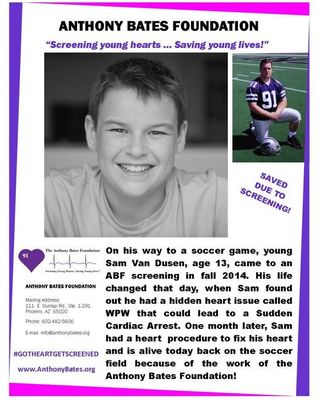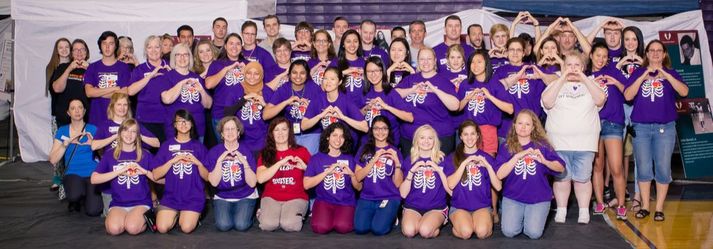
What is it about food that brings people together? Being able to make a dish and share it with the ones you love goes back to the very beginnings of tradition, and it truly represents a special bond. There’s nothing quite like making a recipe that’s been passed down through generations, eating the same foods our great grandparents used to, and making new memories along the way. Yes, there’s definitely something special about coming together to create and share a meal that carries a legacy with it.
Here at the Anthony Bates Foundation, we also cherish the bonding experience that comes from making and sharing a meal. 11 years ago, we decided to reach out to our community and create a cookbook of our own. Tastes of Heaven was truly a labor of love from all of our wonderful families and friends. We gathered all types of recipes and even included some of Anthony’s favorites (Corn Casserole was a major standout!).
Whenever we share our family recipes, we share a little bit of our own story and the people in it. We have the chance to remember those that may no longer be with us while we create new memories of our own. It’s because of this that we are pleased to share with you Tastes of Heaven Volume 2. With nearly twice as many recipes, you’ve got double the opportunity to set aside some time to prepare great meals to share with family and friends. I’ve personally tried a couple recipes and you will not be disappointed. Easy Strawberry Cake with Strawberry Sauce was (courtesy of Cindy Baker. a longtime friend & ultrasound volunteer) and the Gluten Free Melting Moments (courtesy of Pat Paxton, a longtime friend) are the ideal treats for an office potluck. The Cook-Top Cove: Ground Beef Stroganoff in the Slow Cooker (courtesy of Laura Martin, ABF volunteer) is a perfect fast-and-easy weeknight meal that is sure to keep the whole family satisfied. With over 275 recipes, there’s a little bit of something for everyone, and it's the perfect secret weapon with the holiday season fast approaching!
Think about all the important people in your life, family and friends, past and present, with which you’ve shared meals, and the happiness, joy, love, and memories surrounding them. Rekindle those memories and make new ones today by visiting our website. You can order your copy of Tastes of Heaven Volume 2 NOW! And while you’re at it, why not pick up 4 extra copies (and get 2 FREE) to make perfect holiday gifts “from the heart”. All proceeds will help us with our continuing mission to “screen more hearts and save more lives”. With every heart screened, we get to expand our community, share our purpose and develop connections with one another. And it should come as no surprise: we always bring the food!
Now, that’s “food for thought!”
Here at the Anthony Bates Foundation, we also cherish the bonding experience that comes from making and sharing a meal. 11 years ago, we decided to reach out to our community and create a cookbook of our own. Tastes of Heaven was truly a labor of love from all of our wonderful families and friends. We gathered all types of recipes and even included some of Anthony’s favorites (Corn Casserole was a major standout!).
Whenever we share our family recipes, we share a little bit of our own story and the people in it. We have the chance to remember those that may no longer be with us while we create new memories of our own. It’s because of this that we are pleased to share with you Tastes of Heaven Volume 2. With nearly twice as many recipes, you’ve got double the opportunity to set aside some time to prepare great meals to share with family and friends. I’ve personally tried a couple recipes and you will not be disappointed. Easy Strawberry Cake with Strawberry Sauce was (courtesy of Cindy Baker. a longtime friend & ultrasound volunteer) and the Gluten Free Melting Moments (courtesy of Pat Paxton, a longtime friend) are the ideal treats for an office potluck. The Cook-Top Cove: Ground Beef Stroganoff in the Slow Cooker (courtesy of Laura Martin, ABF volunteer) is a perfect fast-and-easy weeknight meal that is sure to keep the whole family satisfied. With over 275 recipes, there’s a little bit of something for everyone, and it's the perfect secret weapon with the holiday season fast approaching!
Think about all the important people in your life, family and friends, past and present, with which you’ve shared meals, and the happiness, joy, love, and memories surrounding them. Rekindle those memories and make new ones today by visiting our website. You can order your copy of Tastes of Heaven Volume 2 NOW! And while you’re at it, why not pick up 4 extra copies (and get 2 FREE) to make perfect holiday gifts “from the heart”. All proceeds will help us with our continuing mission to “screen more hearts and save more lives”. With every heart screened, we get to expand our community, share our purpose and develop connections with one another. And it should come as no surprise: we always bring the food!
Now, that’s “food for thought!”




 RSS Feed
RSS Feed